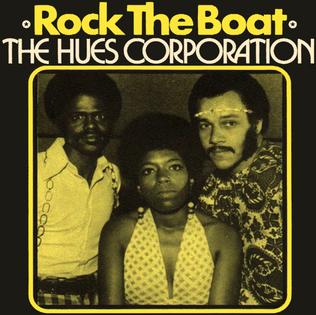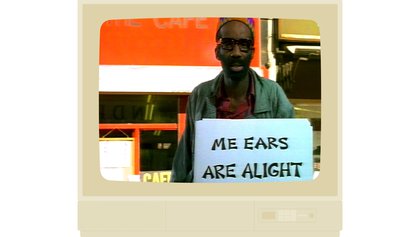27 September 2019

In early August we were approximately two thirds of the way through a (very) long journey from Durham to Vannes in Brittany. We chose to vary the music played in the car as much as possible out of a sense of fairness and to avoid squabbling. The shuffle function is a wonderful thing and, stuck in a traffic jam on the Rennes ring road, it chose to select some songs from the 1970s, Picking Up The Pieces by the Average White Band and I Believe in Miracles by the Jackson Sisters (not the awful Hot Chocolate song). It was momentarily acceptable to be stuck in a long line of traffic on a hot day. The next selection was Rock the Boat by The Hues Corporation, a song that, along with Oops Upside Your  Head, makes me look around anxiously for fear that one of my countless permed aunties is about to drag me onto the dancefloor at a second cousin’s wedding. If you were a teenager in the 1980s you will know how potentially terrifying the above scenario is. Whilst composing myself, a voice from the back of the car began to sing along.
Head, makes me look around anxiously for fear that one of my countless permed aunties is about to drag me onto the dancefloor at a second cousin’s wedding. If you were a teenager in the 1980s you will know how potentially terrifying the above scenario is. Whilst composing myself, a voice from the back of the car began to sing along.
“So, I’d Like to Know Where, You Got Your Goats From. Rock the goat, don’t rock the goat baby….”
“What was that?” I asked. “What did you sing?” After the words were repeated, we began to make fun of the youngest member of the family. ‘But they’re the words!’ She insisted, changing the emphasis of the song from a disco ode to equilibrium into an enquiry from one inquisitive goat herder to another that quickly descends into fear for the welfare of the previously coveted mammal. In fairness, the misheard lyrics adds an extra dimension to an otherwise bland song, but the misunderstanding is obvious. It isn’t a goat themed song.
This might, however, be a genetic deficiency. My mother was 30 in 1979 and, after refusing to get out of bed on her actual birthday because she felt too old, a party was organised. At the party my uncle was given the task of entertaining the gang of feral children roaming the house. He chose to engage us with an overview of his job as an electrician. As the group of children dwindled - boredom, tiredness, a loss of faith in adults – I continued to listen and ask questions at the kitchen table. Wiring, circuits, amps, tracing faults. We covered everything. I remember my uncle explaining with pride that I was a bright boy and that I’d asked pertinent questions and had listened intently. “We’ll make an electrician of him one day.” (My wife hasn’t read this, but I can already hear her sarcastic laughter as she imagines me with a lightbulb. Out of my depth).
About 30 minutes later I have a vivid memory of the terror on the faces of family members as they caught me trying to stick a knife into a socket near to the kitchen door. I was curious about what might happen. As far as I’m aware, my uncle never again suggested a career in electrical maintenance but looked unsurprised when I became the first person in the family to go to university; it confirmed his view of my practical ability and general use to the family.
 My reason for sharing both of these stories is simple. Just because we are talking or explaining something, it doesn’t mean that someone else is listening or understanding. When they nod or confirm that they have grasped something, it might just be that they are too polite to say, “I haven’t got a clue what you are talking about.’ Equally, they may believe that they have got the point, but have actually misunderstood to the extent that they have turned a nautical themed call for harmony into an RSPCA investigation. Again, for readers growing up in the 1980s, this issue was raised in a series of Maxwell Tape adverts, featuring amongst others, Desmond Dekker’s famous, biblically themed description of the impact of poverty, ‘Me Ears Are Alight.’ (Get up in the morning, same thing for breakfast….).
My reason for sharing both of these stories is simple. Just because we are talking or explaining something, it doesn’t mean that someone else is listening or understanding. When they nod or confirm that they have grasped something, it might just be that they are too polite to say, “I haven’t got a clue what you are talking about.’ Equally, they may believe that they have got the point, but have actually misunderstood to the extent that they have turned a nautical themed call for harmony into an RSPCA investigation. Again, for readers growing up in the 1980s, this issue was raised in a series of Maxwell Tape adverts, featuring amongst others, Desmond Dekker’s famous, biblically themed description of the impact of poverty, ‘Me Ears Are Alight.’ (Get up in the morning, same thing for breakfast….).
This is hugely important in teaching. How students understand, retain, contextualise and express what they know is at the heart of good teaching and learning. How that learning is sequenced is essential too, as it is easier to understand things that build and develop in a logical order. Students also need to engage, have a go at linking things together and, most importantly, ask if they are unsure. We are thinking very carefully about these issues at present. Our current focus on literacy, the school curriculum and how students explain and remember what they have studied is intended to identify what works best for different students. As a parent or carer, ask your son and daughter what they have studied in a particular subject? How does it link to last year’s work? Why are they studying it? The more familiar that students become with answering and asking questions, the more they might avoid the more obvious misconceptions that can trip them up in later life.
Mr O’Sullivan
